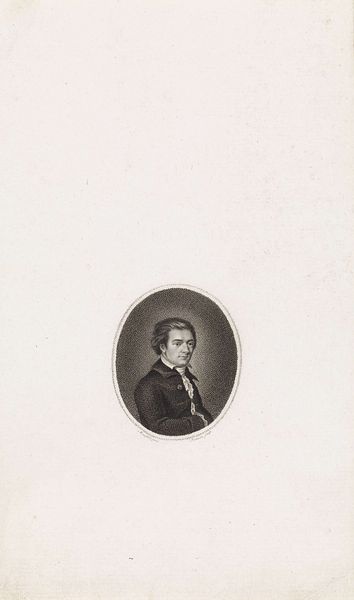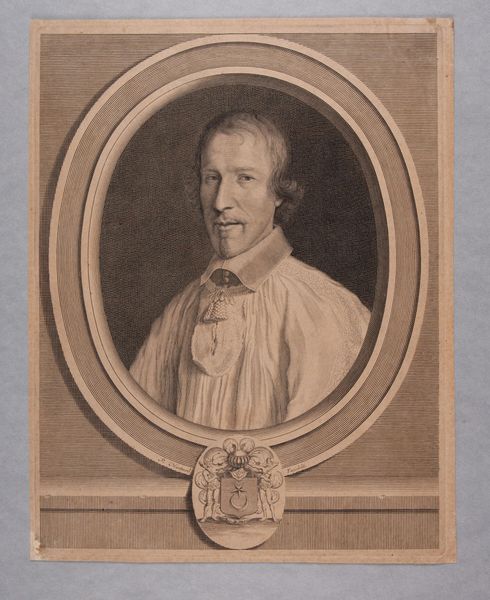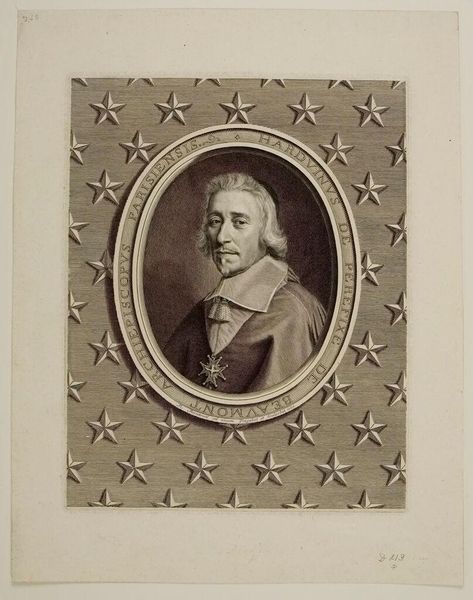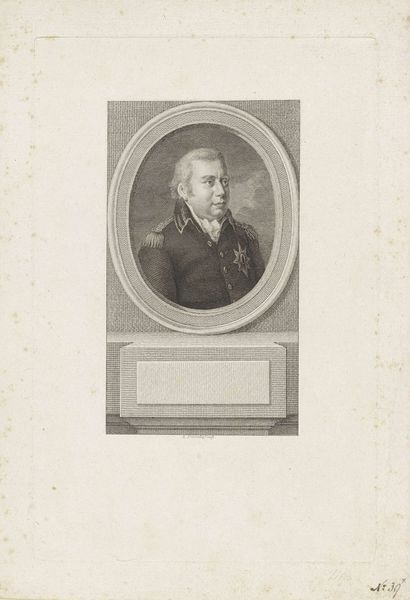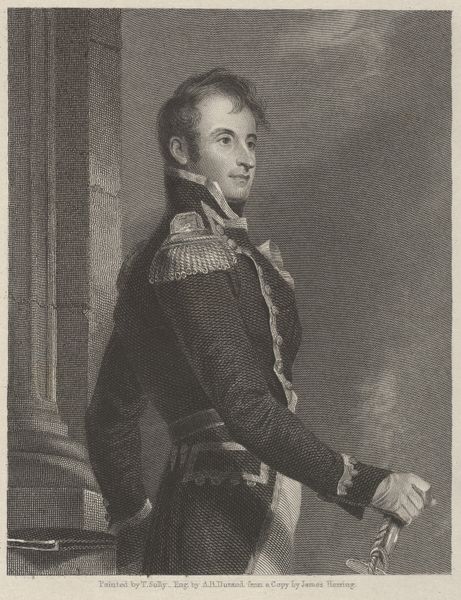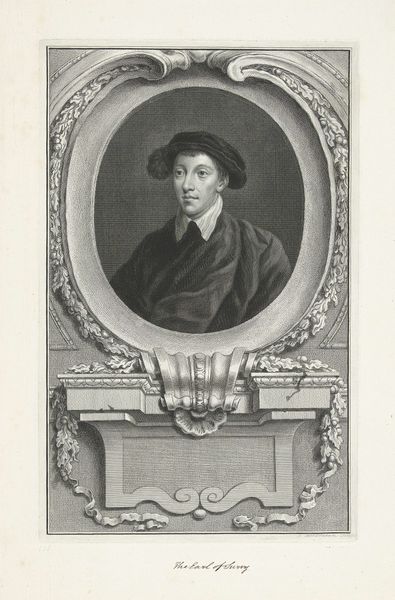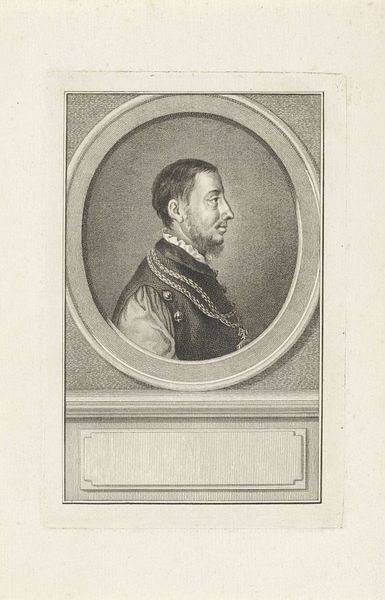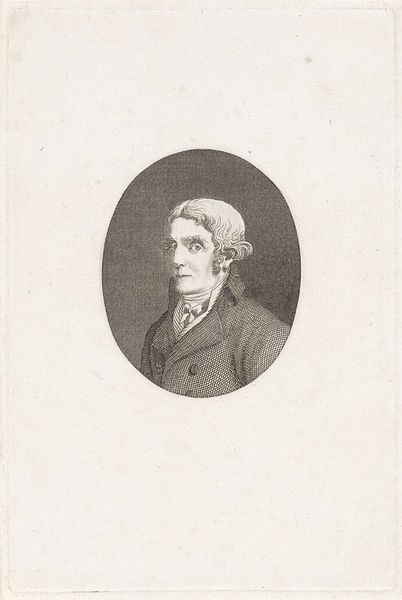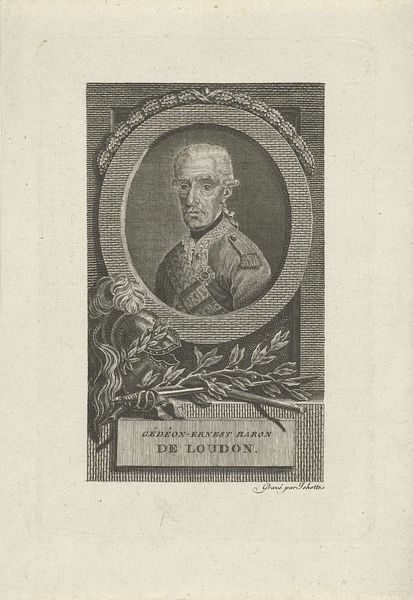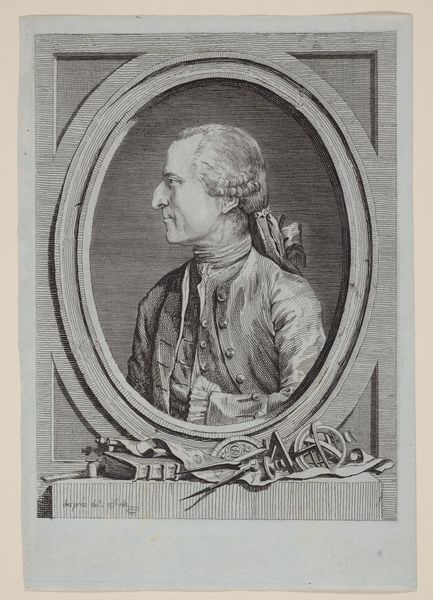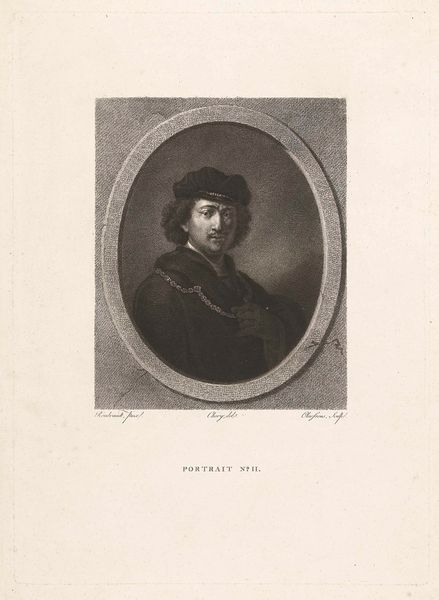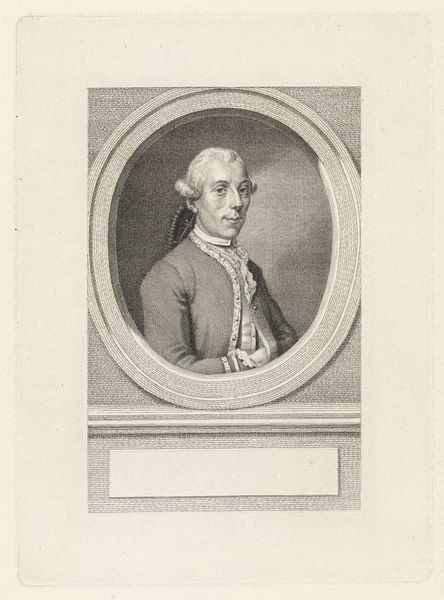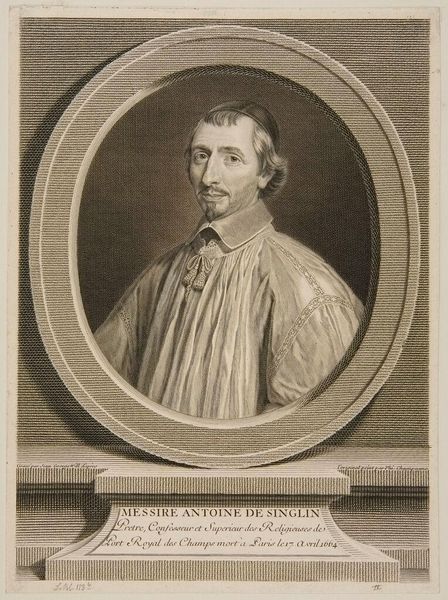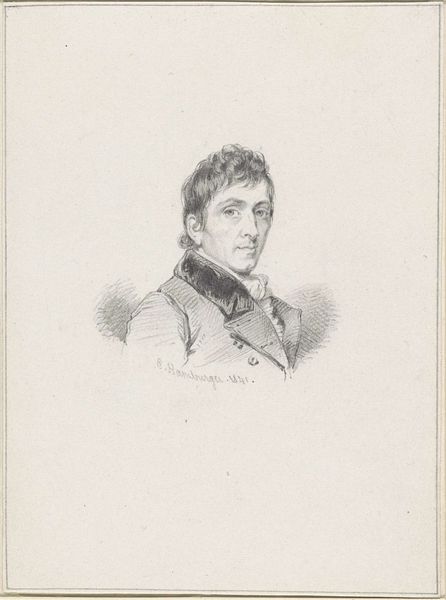
print, engraving
portrait
old engraving style
framed image
19th century
history-painting
academic-art
engraving
Dimensions: height 199 mm, width 263 mm
Copyright: Rijks Museum: Open Domain
Editor: Here we have a print from between 1789 and 1822, “Portret van Lodewijk Napoleon, koning van Holland.” The technique is engraving. Looking at it, I feel transported back to a time of empires and formality. It has a stern, almost melancholy feel to it. What catches your eye most when you look at this engraving? Curator: Melancholy, yes, I feel that too. Funny, isn't it, how a two-dimensional rendering can whisper emotions across centuries? But my eye is drawn to the oval frame and the paraphernalia around it. Notice the drape at the top, the arms…the *eagle*. All the symbolic trappings of power! It’s like a stage set, carefully constructed to convey authority. But the soft gradations and shading of engraving…do you notice a tension between the starkness of the power symbols and the almost tender quality of the portrait? Editor: I do! It's like the artist is trying to show both the official image and maybe a more human side? It also looks like the space for text is blank. I wonder why. Curator: Precisely! Perhaps that blank space invites us, the viewers, to complete the narrative. Engravings were often mass-produced, meant for dissemination. To solidify the story someone wanted told! Now, centuries later, does it succeed? I mean, what story do *you* think this print is trying to tell? Does it manage to portray power, or does the melancholic Lodewijk complicate that image? Editor: It's definitely more complicated than just a simple show of power. I see someone who is burdened, almost. Learning to look for those visual tensions makes art history so much more interesting than just dates and names. Curator: Exactly! It’s about those whispers between lines, those stories hiding in plain sight.
Comments
No comments
Be the first to comment and join the conversation on the ultimate creative platform.
